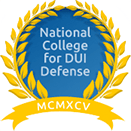
What is a Conspiracy Charge in NJ?
Paterson NJ Criminal Defense Lawyers: N.J.S.A. 2C:5-2
The offense of conspiracy is set forth at N.J.S.A. 2C:5-2. This law makes it a crime for anyone to enter into an agreement, that is, conspire to commit a criminal offense. A conspiring charge is, however, limited to agreements to commit an indictable crime and therefore does not include an agreement to commit a disorderly persons offense. If you were arrested in Clifton, West Milford, Passaic or another municipality in Passaic County for conspiracy, your case will be heard in Paterson at the Superior Court. Our firm, The Law Offices of Jonathan F. Marshall has the skill and experience to determine and pursue the best route to successfully defend the conspiring offense. An attorney can be reached anytime 24/7 to assist you at 862-203-4070.
What Is Required to Prove A Conspiracy Charge?
The elements that the prosecutor must prove to convict someone of conspiracy include:
- The Defendant acted with a purpose of promoting or facilitating the commission of a crime;
- There must be an agreement between the Defendant and at least one other person;
- The agreement must be for the Defendant or one of the other persons to commit, attempt or solicit the commission of a crime OR an agreement to aid such other person or persons in planning, committing or attempting or soliciting the crime; and
- An overt act in pursuance of the conspiracy, committed by one of the persons in the agreement
The agreement that is required to prove a conspiracy does not need to be an “express” agreement, meaning that it does not need clear cut language. If there are multiple parties to a conspiracy, they need not all agree to commit a crime at the same time. There is also no requirement that all parties conspire with one another or even know each other. In terms of the requirement of an overt act in furtherance of the conspiracy, it is not necessary that the defendant take a “substantial step” towards completing the crime, as would be required under prosecution for Criminal Attempt, but only an open, clear act in furtherance of the conspiracy. It should also be noted that the requirement of an overt act DOES NOT APPLY to where the criminal act is a crime of the first or second degree, or where the crime is possession with intent to distribute a controlled dangerous substance.
How Far Does Liability for Conspiracy Extend?
For example, if a person conspires to to commit a burglary, but they are not involved in the actual commission of the act, can that person be criminally liable for a kidnapping (not originally planned) that occurs during the burglary? Probably not. The criminal liability of a Conspiracy only extends to criminal acts that are reasonably foreseeable as the necessary consequences of the conspiracy. The court applies a reasonable foreseeability test to the individual facts of the case to determine whether those who conspired will be held responsible for criminal acts not originally planned.
How Long Can a Conspiracy Last?
A conspiracy is considered to last until the agreed upon crime or crimes have been committed, or until the Defendant and his co-conspirators abandon said criminal acts.
Can You Terminate or Get Yourself Out of a Conspiracy?
The Defendant must prove he backed out of a conspiracy, legally referred to as a “renunciation of purpose”, by a preponderance of the evidence. This affirmative defense requires not only that the Defendant voluntarily and completely back out of the conspiracy, but also that he inform the authorities of the existence of the conspiracy and of his participation in it. In order for the renunciation to be considered voluntary, it must occur before the authorities have arrested the Defendant.
What Degree of Crime is a Conspiracy?
Conspiracy to commit a crime is generally the same degree as the degree of the criminal conduct the parties have agreed to commit. For instance, if the parties have an agreement to commit a Fourth Degree Aggravated Assault, the conspiracy charge would be a Fourth Degree Crime. However, if the crime that the parties conspired to commit was a crime of the first degree, the conspiracy charge is a Second Degree Crime. The only time that a conspiracy charge can be a crime of the First Degree is if the conspiracy was to commit an aggravated arson or an arson-for-hire of a church, synagogue, mosque, or other place of public worship.
Penalties for Conspiracy
The penalties for first degree conspiracy include 10-20 years in prison and a fine of up to $200,000. While the potential consequences for second degree conspiracy are less, the are still serious at 5-10 years in prison and a $150,000 fine. The penalties for third degree conspiracy and fourth degree conspiracy carry jail terms of 0-5 years and 0-18 months respectively. The fine can be as high as $15,000 for third degree conspiracy and $10,000 for fourth degree conspiracy. The potential fines escalates for distribution of CDS and certain other offenses.
If you were arrested based on allegations that you conspired to commit a crime under N.J.S.A. 2C:5-2, give our law firm a call. An attorney is available to assist you 24/7 at 862-203-4070.








